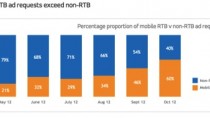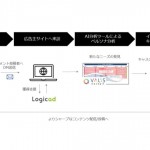モバイル広告の”地域情報”を信じるべきではない!?(英文)
Location data for mobile ad campaigns gets a bad rap these days with advertisers, and for good reason.
Sellers, including mobile ad networks, exchanges and publishers, fall short of specifying what kind of location data is packaged with their inventory, while agencies and brands don’t ask enough questions about the location data that’s part of their ad buys. It’s a perfect storm of seller deceit by omission and buyer ignorance.
“It’s not that all of the data is bad,” noted Victor Milligan, CMO of mobile ad exchange Nexage. “It’s that some of the data is bad.”
The iffiest data come from consumers’ IP addresses, depending on whether the address is from a cell carrier (accuracy is sketchy) or a WiFi network (more precise).
Meanwhile, IP code data can be murky because the viewer may be actually several towns away from an advertiser’s storefront. The best way is GPS-derived latitude-longitude (typically called “lat-long” ), with which brands can effectively pitch folks within feet of their businesses.
Digital analysts estimate that between only 5 percent and 10 percent of mobile ad impressions are based on lat-long data. Lat-long can cost more than twice as much as ZIP code data and may be worth it, said Milligan.
But do brands know the difference? “The answer is probably not,” conceded Crid Yu, North America gm for mobile ad network InMobi.
Sara Shikhman, CEO of Bedroom Furniture Discounts, is just one store owner who isn’t fully versed on the complexities of location data. She’s been buying mobile to drive foot traffic to her Brooklyn showroom. When asked about specifics, she couldn’t discern the various kinds of mobile data. That lack of understanding jibes with what Tom MacIsaac, CEO of Verve Wireless, sees industrywide. “Brands are not sophisticated enough to know their location data are not lat-long,” he said. “A lot of savvy mobile players know they are acting on impressions with bad data. They are just ignoring the problem. By doing that, they are making more money.”
Agencies and clients are getting better at asking vendors the right questions, contends Michael Becker, managing director for the Mobile Marketing Association North America. “No one is intending to mislead,” he asserted. “When we hear the word location, we all probably hear something a little bit different.”
The location data issue also underscores a larger industry problem, said Dirk Rients, vp of mobile for Draftfcb. “In the mobile advertising world, it’s the spray-and-pray model,” he said. “You throw a whole bunch of stuff out there and hopefully somebody sees it.”
from:
http://www.adweek.com/news/technology/you-shouldnt-trust-mobile-location-data-148127











